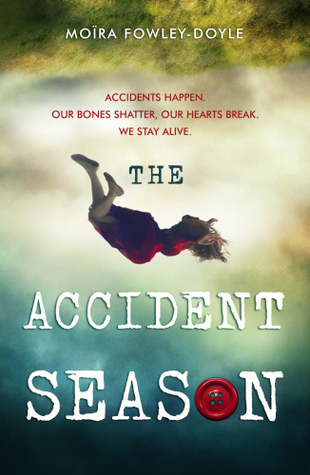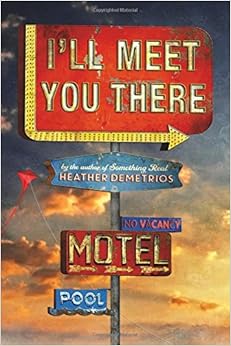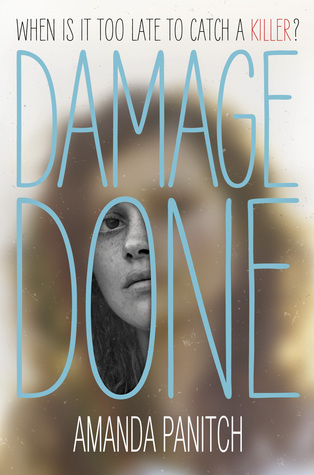"There are no ghosts; only the dust in the light, our breath and the wind in the quiet, and the feeling that something, or a lot of somethings, are watching us."
 I realized, reader, that I haven't been reviewing enough Young Adult fiction. This may give you an inaccurate impression of my reading habits. I love YA - I'm proud of how the market is growing, and I'm impressed by the huge strides YA authors are making in terms of inclusivity and character diversity. I'm proud to say that I've sought refuge in the homes of more than one YA author (they tend to have the best music and food, for what it's worth).
I realized, reader, that I haven't been reviewing enough Young Adult fiction. This may give you an inaccurate impression of my reading habits. I love YA - I'm proud of how the market is growing, and I'm impressed by the huge strides YA authors are making in terms of inclusivity and character diversity. I'm proud to say that I've sought refuge in the homes of more than one YA author (they tend to have the best music and food, for what it's worth).Most of my favorite YA books don't really feel like YA to me. In general, I love books that are very, very good, and those tend not to rely too much on the drama of what an adult remembers high school to have been like. I enjoy human stories, and good YA treats teens as humans, and tells their stories - stories that include mental illness and questions of identity and love and sex and murder.
I'm not elucidating this particularly well. This is why I rely on Ashley S. for the meatier YA reviews - because I'm not great at unpacking what separates good YA from bad YA from good any-other-books. So, reader, if I'm reviewing YA on here, it's probably because I think it's very, very good, on its own and within its genre.
Either that, or I'm reviewing it because I think it's very, very, very bad.
Accident Season by the fearless Moïra Fowley-Doyle...
...is very, very good.
Here is your premise: Once a year, for a month, Cara's family is subject to accidents. All kinds of accidents, ranging from the negligible to the awful. They don't know why - it's just what happens. And nobody ever talks about it.
This book is not about that. Not really. That's a framing element, but really, the book is about the family and their past and their present and all of the entanglements of growing up in a family where something like that could be accepted as normal. A family where lots of things can be accepted as normal.
A couple of things before I get into the meat of this book: First, the speculative/paranormal element was absolutely integral to the story in so many ways. The important aspects of the plot are grounded in reality, but the entire tone of the book is like looking through old leaded glass: just a little wavy and warped by the fantastic. It's a very Irish sort of speculative fiction, in which fantasy is just part of reality, and that's how it is, and that's okay.
Second: this book has the best drunkenness I've ever read. There is a scene in which our narrator is drunk - not just tipsy, not your poorly-written 'oops I tried beer for the first time' drunk, but really and truly I've-been-drunk-before-and-I'm-drunk-now drunk. The writing gets choppy and wobbly and everything is moving just a little too fast and it's written absolutely perfectly.
Now to the meat of it, which isn't about the speculative element and isn't about getting drunk, no matter how beautifully written those parts are. The real story is about looking away from things. About ignoring the fact that something isn't right. Because isn't it wrong to have a month out of the year during which people get hurt and die, and nobody knows why? And yet Cara's family lives with those injuries, and doesn't discuss them.
This is going exactly where you think it's going, reader, and it's incredibly well done.
Now, for spoilers.
This is a book about child abuse.
This is a book about abuse, period.
This is a book about self-harm.
This is a book about sex and relationships and all the different ways that people find themselves in love.
Oh, also: there's a ghost, who admits that some of the accidents were accidents. She is pretty important to the story, reader, but she's not the focus of the review so I'll just say: she's written perfectly, brilliantly, a round of applause to Moïra Fowley-Doyle for handling her story so well.
At the end of Accident Season, Cara looks at all the things she's avoided looking at - all the things everyone in her family has refused to look at. These things aren't approached as a Big Reveal - instead, we walk with the characters as they finally put the pieces together. Things they should have seen all along - but instead, they looked away. They finally look directly at the fact that Cara's ex-stepfather sexually abused her sister - a sister who now hurts herself and who seeks out men that hurt her. Cara's best friend finally looks at her love for that same sister, and the sister looks back. Cara and her ex-stepbrother (it's complicated) finally admit that they're in love with each other, and have some great physical scenes (reader, this book, it's so good).
Cara's mother - and her whole family - finally admit that not all the accidents were accidents. They will need to struggle with that, because for so long, it's been easier for them to pretend that every time someone showed up with a broken bone or a black eye or a cut on their wrist - oh, it's just the accident season.
And they will struggle. And they will still, at the end of that struggle, be a family who finally looked at each other.
This is a book about abuse, period.
This is a book about self-harm.
This is a book about sex and relationships and all the different ways that people find themselves in love.
Oh, also: there's a ghost, who admits that some of the accidents were accidents. She is pretty important to the story, reader, but she's not the focus of the review so I'll just say: she's written perfectly, brilliantly, a round of applause to Moïra Fowley-Doyle for handling her story so well.
At the end of Accident Season, Cara looks at all the things she's avoided looking at - all the things everyone in her family has refused to look at. These things aren't approached as a Big Reveal - instead, we walk with the characters as they finally put the pieces together. Things they should have seen all along - but instead, they looked away. They finally look directly at the fact that Cara's ex-stepfather sexually abused her sister - a sister who now hurts herself and who seeks out men that hurt her. Cara's best friend finally looks at her love for that same sister, and the sister looks back. Cara and her ex-stepbrother (it's complicated) finally admit that they're in love with each other, and have some great physical scenes (reader, this book, it's so good).
Cara's mother - and her whole family - finally admit that not all the accidents were accidents. They will need to struggle with that, because for so long, it's been easier for them to pretend that every time someone showed up with a broken bone or a black eye or a cut on their wrist - oh, it's just the accident season.
And they will struggle. And they will still, at the end of that struggle, be a family who finally looked at each other.
Rating: Divine.
Possible ratings: Magnificent, Divine, Satisfactory, Tiresome, Lamentable, Execrable. This is a blog about words, what rating system did you expect?

